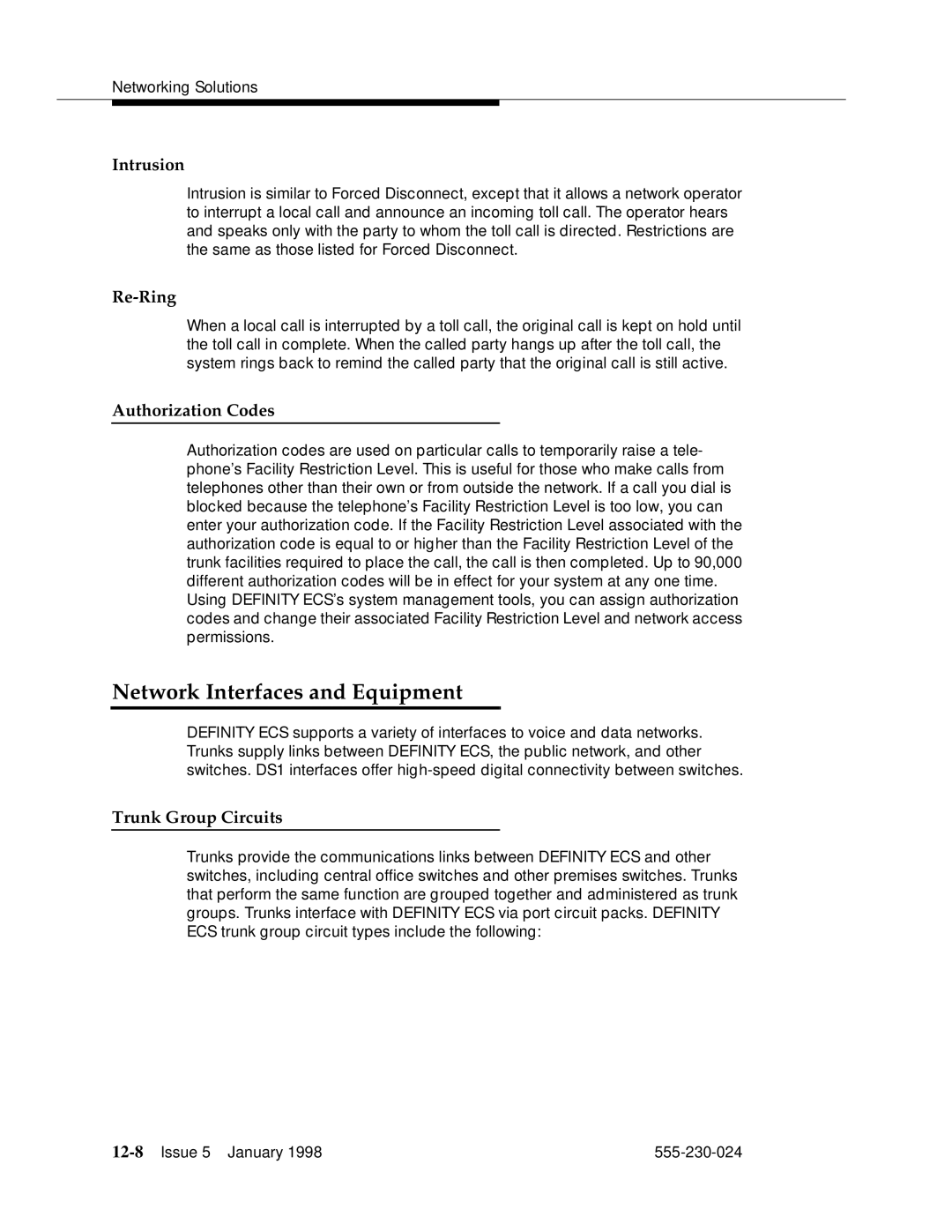
Networking Solutions
Intrusion
Intrusion is similar to Forced Disconnect, except that it allows a network operator to interrupt a local call and announce an incoming toll call. The operator hears and speaks only with the party to whom the toll call is directed. Restrictions are the same as those listed for Forced Disconnect.
Re-Ring
When a local call is interrupted by a toll call, the original call is kept on hold until the toll call in complete. When the called party hangs up after the toll call, the system rings back to remind the called party that the original call is still active.
Authorization Codes
Authorization codes are used on particular calls to temporarily raise a tele- phone’s Facility Restriction Level. This is useful for those who make calls from telephones other than their own or from outside the network. If a call you dial is blocked because the telephone’s Facility Restriction Level is too low, you can enter your authorization code. If the Facility Restriction Level associated with the authorization code is equal to or higher than the Facility Restriction Level of the trunk facilities required to place the call, the call is then completed. Up to 90,000 different authorization codes will be in effect for your system at any one time. Using DEFINITY ECS’s system management tools, you can assign authorization codes and change their associated Facility Restriction Level and network access permissions.
Network Interfaces and Equipment
DEFINITY ECS supports a variety of interfaces to voice and data networks. Trunks supply links between DEFINITY ECS, the public network, and other switches. DS1 interfaces offer
Trunk Group Circuits
Trunks provide the communications links between DEFINITY ECS and other switches, including central office switches and other premises switches. Trunks that perform the same function are grouped together and administered as trunk groups. Trunks interface with DEFINITY ECS via port circuit packs. DEFINITY ECS trunk group circuit types include the following:
